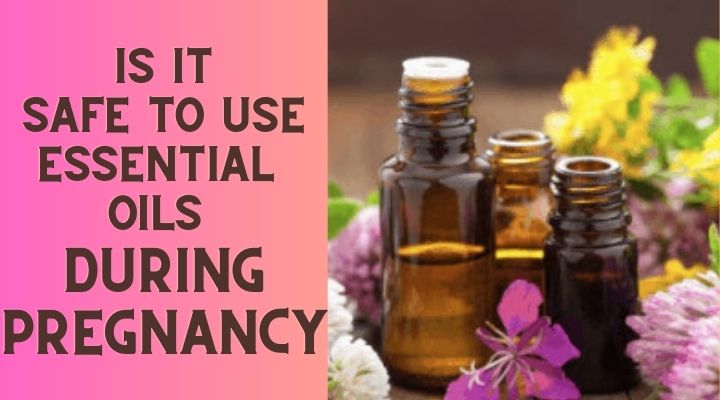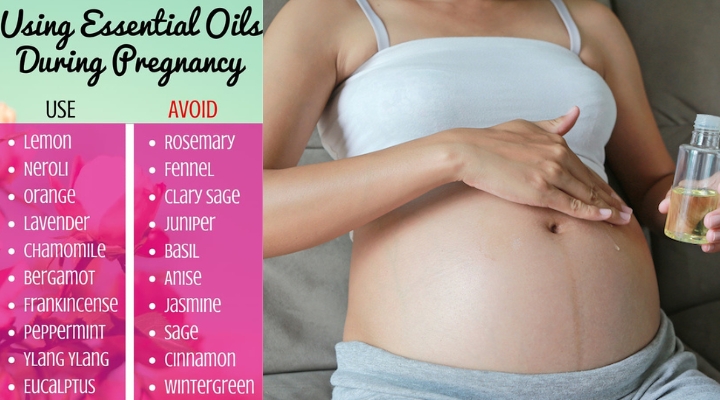Is It Safe to Use Essential Oils During Pregnancy- Yes or No
Pregnancy is a miraculous journey, but it comes with too many questions and concerns about what is safe for both the expectant mother and her growing baby. Here is the answer to your question “Is it safe to use Essential Oils during Pregnancy – Yes or No? Essential oils have gained popularity in recent years for their potential therapeutic benefits, but their safety during pregnancy remains a topic of debate. In this article, we will explore the potential risks and benefits of using essential oils during pregnancy, helping you make an informed decision about incorporating them into your prenatal routine. There are many essential oil available in the market nowadays. You must choose the one which suits your body and skin. Always make a point to buy from trusted brands.
Understanding Essential Oils
Essential oils are highly concentrated plant extracts derived from flowers, leaves, stems, or roots of various plants. They have been used for centuries in traditional medicine for their aromatic and medicinal properties. These oils are commonly used in aromatherapy to promote relaxation, alleviate stress, and address a wide range of physical and emotional issues.
Benefits of Essential Oils during Pregnancy:
1. Relieving Nausea-
Some essential oils, such as ginger and peppermint, have been traditionally used to alleviate pregnancy-related nausea and morning sickness.
2. Reducing Stress and Anxiety-
Aromatherapy with certain essential oils, like lavender and chamomile, may help reduce stress and promote relaxation, which is vital for expectant mothers.
3. Alleviating Aches and Pains-
Essential oils like eucalyptus and chamomile might offer relief from common pregnancy discomforts, such as back pain and swollen feet.
4. Promoting Better Sleep-
Struggling with sleep is a common issue during pregnancy. Aromatherapy with lavender or ylang-ylang could potentially improve sleep quality.
5. Balancing Hormones-
Some essential oils, such as clary sage, are believed to have hormone-balancing properties, which could be beneficial during pregnancy.
Is it safe to use Essential Oils during Pregnancy?
Essential oil comes in different varieties and scents. Some we can use during pregnancy while others should be avoided.
Essential Oils that are Safe during Pregnancy
Lavender Oil-
Lavender oil is a versatile and widely loved essential oil that can be incredibly soothing during pregnancy. Its calming properties help relieve stress, and anxiety, and promote restful sleep. Dilute a few drops of lavender oil in a carrier oil and apply it to your wrists, temples, or use it in a diffuser for a relaxing aromatherapy experience.
Citrus Oils (Sweet Orange, Lemon, Grapefruit)-
Citrus oils are known for their uplifting and energizing properties. They can help combat fatigue and mood swings commonly experienced during pregnancy. The fresh and invigorating scents of sweet orange, lemon, or grapefruit essential oils can be diffused or added to a carrier oil for a revitalizing massage.
Bergamot Oil-
Derived from the rind of citrus fruit, bergamot oil has a delightful aroma and is often used for its mood-balancing and stress-relieving properties. It can help uplift the mood and promote a sense of calm and relaxation. Dilute a few drops in a carrier oil and enjoy a soothing massage or add it to your bath for a tranquil experience.
Chamomile Oil-
Both Roman and German chamomile oils are safe to use during pregnancy. Chamomile is renowned for its calming and soothing effects, making it an excellent choice for reducing anxiety, promoting relaxation, and improving sleep quality. Use it in a diffuser or add a few drops to your bathwater for a peaceful ambiance.
Ylang Ylang Oil-
Ylang-ylang oil is widely cherished for its sweet, floral fragrance and its ability to promote relaxation and uplift the mood. It can help alleviate stress and anxiety, making it an ideal choice during pregnancy. Dilute a few drops in a carrier oil and apply it to your pulse points or use it in a diffuser to create a serene atmosphere.
Geranium Oil-
Geranium oil offers balancing and harmonizing properties, which can be particularly helpful during pregnancy when emotions may fluctuate. It is known to uplift mood, reduce stress, and promote emotional well-being. Dilute geranium oil in a carrier oil and use it for a gentle massage or as a natural perfume.
Sandalwood Oil-
Sandalwood oil has a warm and grounding aroma that can help promote a sense of tranquility and relaxation. It is often used for its calming properties and can aid in reducing anxiety and stress. Dilute a few drops in a carrier oil and apply it to your skin or use it in a diffuser during meditation or relaxation sessions.
Eucalyptus Oil-
Eucalyptus oil can be used cautiously during pregnancy to help alleviate respiratory congestion and support overall respiratory health. However, it’s important to use it in small amounts and well-diluted. Add a few drops to a warm bath or use it in a steam inhalation session to help clear congestion and promote easier breathing.
Essential Oils that should be avoided during pregnancy
During pregnancy, it’s generally recommended to exercise caution when using essential oils as some oils may have potential risks or side effects. While there isn’t an exhaustive list of essential oils to avoid during pregnancy, here are some essential oils that should be avoided during Pregnancy:
Clary Sage-
It’s known to have uterine-stimulating properties and may potentially induce contractions.
Rosemary-
This oil is believed to increase blood pressure and may cause contractions.
Basil-
It’s known to have emmenagogue properties, which means it can stimulate menstrual flow and potentially affect the uterus.
Jasmine-
This oil has been traditionally used to induce labor and should be avoided until term.
Juniper Berry-
It may have a stimulating effect on the uterus and should be avoided during pregnancy.
Thyme-
This oil is believed to stimulate menstrual flow and should be avoided during pregnancy.
Cinnamon-
It’s a powerful oil that may potentially cause contractions and should be used cautiously.
Pennyroyal-
This oil is considered highly toxic and should be avoided during pregnancy.
Oregano-
It’s believed to have emmenagogue properties and may stimulate menstrual flow, potentially affecting the uterus.
Precautions to be taken when using essential oil during pregnancy
When using essential oils during pregnancy, it’s important to exercise caution and take certain precautions to ensure the safety of both the mother and the baby. Here are some essential precautions to consider:
Consult with a Healthcare Professional-
Before using any essential oils, it’s crucial to consult with your healthcare provider, such as your obstetrician, midwife, or a qualified aromatherapist. They can provide personalized guidance based on your health condition and stage of pregnancy.
Use High-Quality Essential Oils-
Choose reputable brands that offer high-quality, pure essential oils. Look for oils that are labeled as “pure” or “100% therapeutic grade” to ensure that they do not contain synthetic additives or harmful chemicals.
Dilute Essential Oils Properly-
Essential oils are highly concentrated and should always be diluted before use. Use a carrier oil, such as sweet almond oil or coconut oil, to dilute the essential oil and apply it topically. A general guideline is to use a 1-2% dilution, which means 1-2 drops of essential oil per teaspoon of carrier oil.
Perform a Patch Test-
Before using any essential oil for the first time, perform a patch test to check for any potential skin sensitivity or allergic reactions. Apply a small amount of diluted oil to a patch of skin and wait for 24 hours to observe any adverse reactions.
Avoid Ingestion-
It’s generally advised to avoid ingesting essential oils during pregnancy, as their safety for internal use is not well-established. Even certain oils that are safe for aromatherapy or topical use may not be safe for ingestion.
Use Essential Oils in Well-Ventilated Areas-
When diffusing essential oils, ensure that the room is well-ventilated to prevent overexposure. Avoid prolonged exposure to concentrated aromas, and take breaks if you start to feel overwhelmed
Avoid Heat-Inducing Oils-
Certain essential oils, such as basil, clary sage, and cinnamon, have the potential to stimulate contractions or increase blood pressure. It’s generally recommended to avoid these oils during pregnancy to minimize any potential risks.
Listen to Your Body-
Pay attention to how your body responds to essential oils. If you experience any discomfort, adverse reactions, or sensitivity, discontinue use and seek medical advice.
How to find Quality Essential Oils
Finding quality essential oils can be a daunting task due to the wide variety of products available on the market. However, by following these guidelines, you can increase your chances of finding high-quality essential oils:
Research Reputable Brands-
Start by researching and identifying reputable essential oil brands. Look for companies that are transparent about their sourcing, production methods, and testing procedures. Reputable brands often provide detailed information about the botanical source, extraction methods, and any certifications they hold.
Look for Purity Claims-
High-quality essential oils are often labeled as “pure,” “100% therapeutic grade,” or “certified organic.” These labels indicate that the oils are free from synthetic additives, dilutions, or contaminants. Be wary of products that don’t clearly state their purity or have vague labeling.
Check for Third-Party Testing-
Trustworthy brands typically conduct third-party testing to verify the purity, authenticity, and quality of their essential oils. Look for companies that provide access to their testing reports, which may include gas chromatography-mass spectrometry (GC-MS) analysis, to ensure that the oils are free from impurities or adulteration.
Consider Sourcing and Extraction Methods-
Pay attention to where the plants are sourced and how the oils are extracted. High-quality oils often come from plants grown in their indigenous regions, where the climate and soil conditions are optimal. Look for brands that use gentle extraction methods like steam distillation or cold-pressing, which help preserve the integrity of the plant’s natural compounds.
Read Reviews and Seek Recommendations-
Reading customer reviews and seeking recommendations from trusted sources, such as aromatherapists or healthcare professionals, can provide valuable insights into the quality and efficacy of specific essential oil brands. Consider joining online forums or communities focused on aromatherapy to gather recommendations from experienced users.
Price Considerations-
While price doesn’t always determine quality, extremely low-priced essential oils may indicate poor quality or adulteration. High-quality essential oils require a significant amount of plant material to produce, which can make them more expensive. Be cautious of heavily discounted oils that seem too good to be true.
Trust Your Senses-
Use your senses as a guide. High-quality essential oils should have a pure, potent aroma that accurately reflects the plant they are derived from. If an oil smells artificial, weak, or off, it may be an indication of poor quality.
Start Small-
When trying out a new brand or oil, start with a small quantity to test its quality and compatibility with your body. This allows you to evaluate any potential reactions or sensitivities before committing to a larger purchase.
I hope now all your doubts are clear whether Is It Safe to Use Essential Oils During Pregnancy. The safety of using essential oils during pregnancy remains a topic of debate due to limited scientific research and conflicting information. While some essential oils are generally regarded as safe when used properly, others should be avoided altogether. Expectant mothers must consult with healthcare professionals who can provide informed guidance based on individual circumstances.
Pregnancy is a delicate period, and caution should always be exercised when introducing any new substances, including essential oils. With the guidance of a qualified healthcare provider and adherence to proper dilution and safety measures, essential oils may be used cautiously to enhance relaxation and well-being during pregnancy. However, it is always better to err on the side of caution and prioritize the well-being of both the expectant mother and the developing baby.
Hope this post reduces your confusion about whether Is It Safe to Use Essential Oils During Pregnancy? Let us know which essential oils you are using right now and also share your stories with us in the comments section below.










